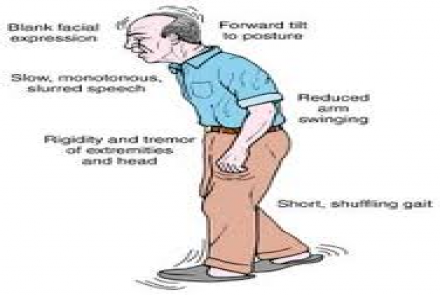Dopamine is a Brain Chemical that helps to control muscle movement. In Parkinson's Disease the brain cells that make dopamine slowly die. The resultant lack of dopamine in body leads to physical symptoms such as slowness of movement, unusual stiffness in body, tremors and loss of balance. Depression, anxiety, constipation, speech-swallowing problems are some of the many other affections of Parkinson's Disease.

Caregiving is a challenging job. Depending on the severity of the condition, you have to be prepared to do the following:
- Accompany the person with Parkinson’s disease for their medical appointments
- Install safety features around the house
- Get additional help if you are not around to monitor and assist the patient
- Additionally, remember that a good relationship and communication with the patient keeps them and you happier and healthier.
- Look after your own health and mental wellbeing.
Changed
27/Oct/2015
Condition










